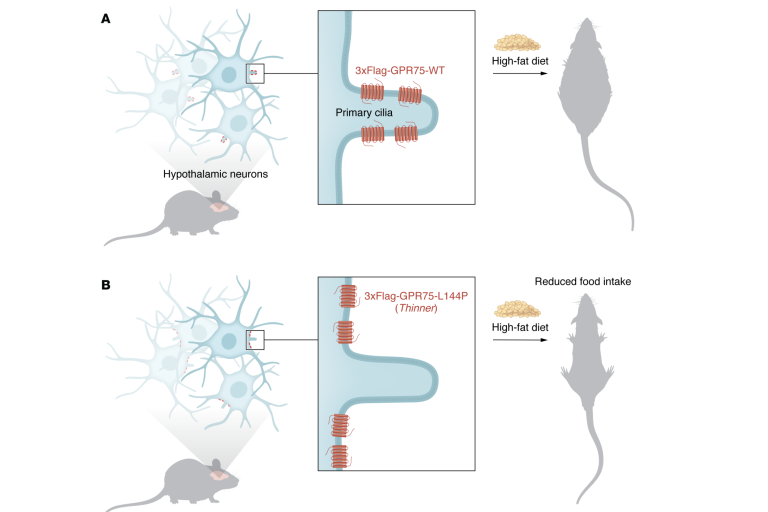Molecular Mechanisms of Metabolic Diseases
We combine forward genetics with biochemistry and molecular biology
Our investigation began with a search for mutations that cause metabolic disorders in mice, using the largest mouse forward genetic screen platform developed in the Center for the Genetics of Host Defense. We have screened more than half of the mouse genome, and now study the role of these genes in various metabolic diseases, including obesity, diabetes, and nonalcoholic fatty liver disease (NAFLD).

Principal Investigator
Dr. Zhang obtained his B.S. in biotechnology from Shandong University in 2008. He received his Ph.D. in developmental biology in 2014 from the Institute of Biochemistry and Cell Biology, Chinese Academy of Sciences, under the direction of Dr. Yun Zhao. He then joined the lab of Dr. Bruce Beutler at UT Southwestern for his post-doctoral training.
In 2020, Dr. Zhang became an Assistant Professor in the Center for the Genetics of Host Defense at UT Southwestern with support from an NIH Pathway to Independence Award (K99/R00).

August 2024
A paper from the Zhang Lab was published in The Journal of Clinical Investigation identifying that GPR75, an orphan GPCR, functions in the primary cilia of neurons to regulate food intake and obesity. GPR75 is emerging as a promising target for obesity treatment, but its molecular mechanism (where and how it regulates energy homeostasis) remains unclear. This work revealed that GPR75 exclusively localizes in the primary cilia, a tiny organelle similar to an antenna, to regulate food intake in the brain.
A commentary paper was also published in the same issue, titled "Ciliary Localization of GPR75 Promotes Fat Accumulation in Mice", https://www.jci.org/articles/view/185059 (the model image is from this paper).

Interested in our research? Get in touch to learn more or find out ways to collaborate.
Get in Touch
If you're interested in joining our team, please reach out to learn more about open positions.
Explore Opportunities